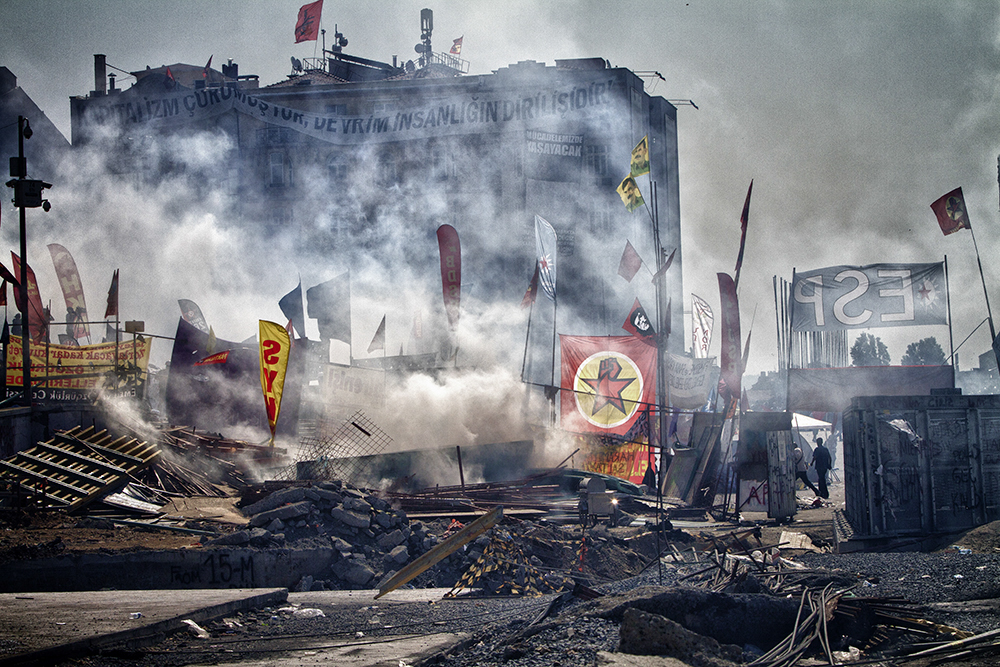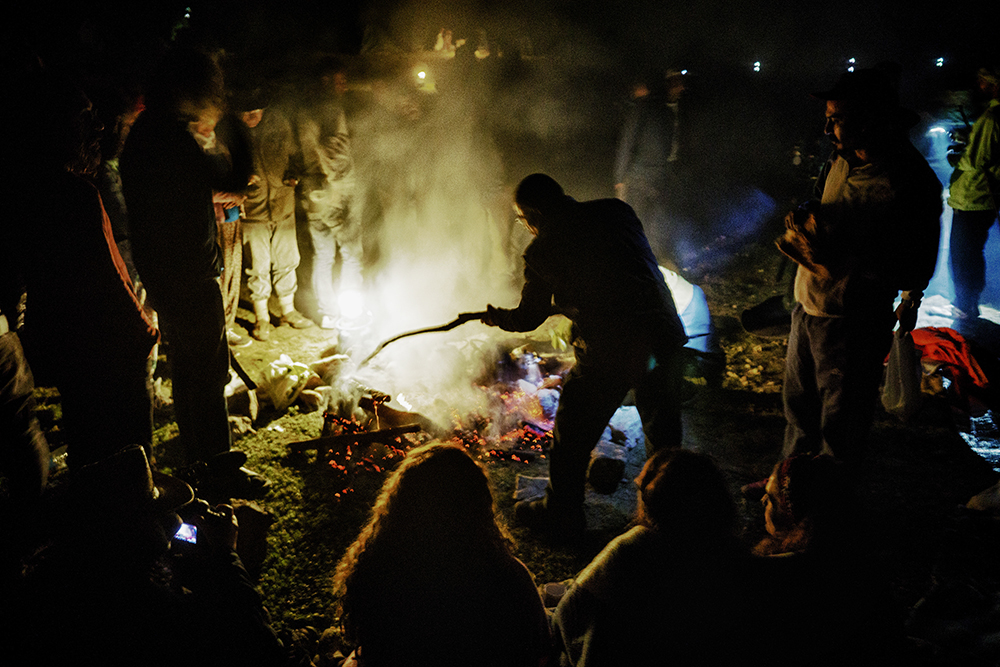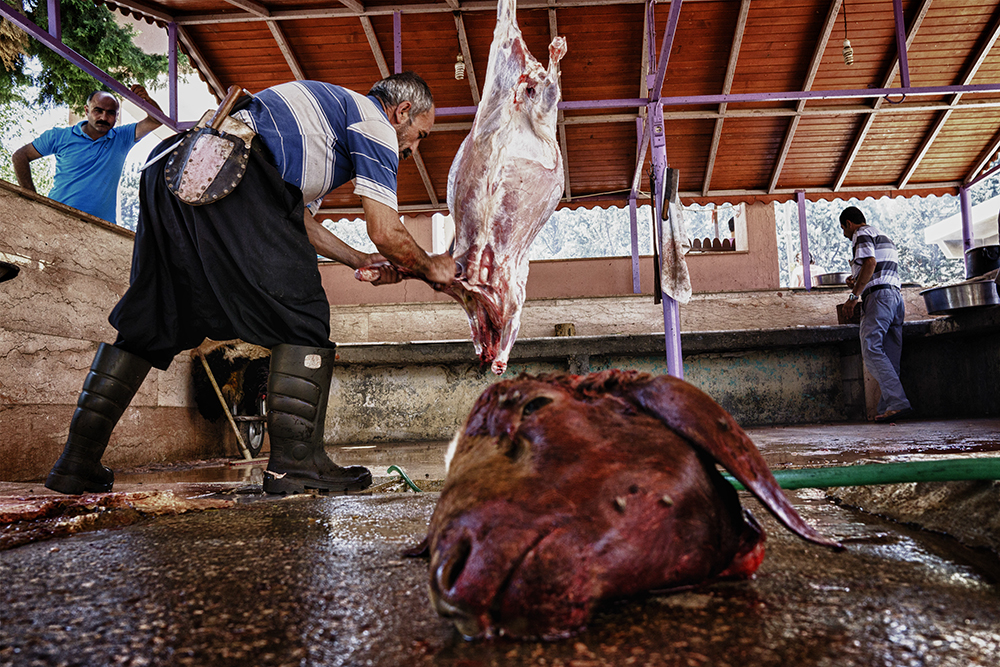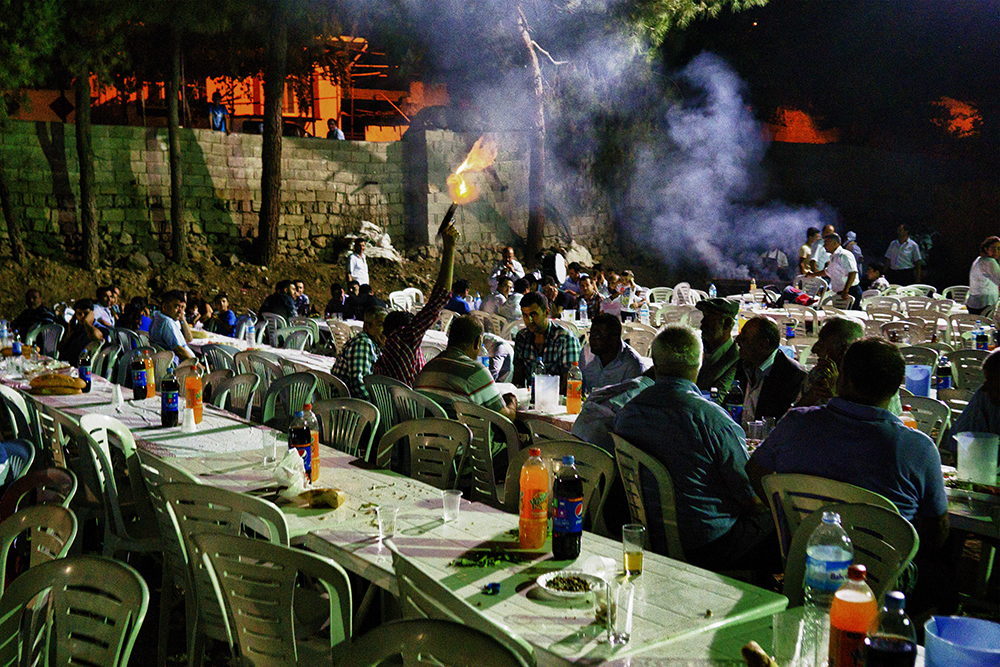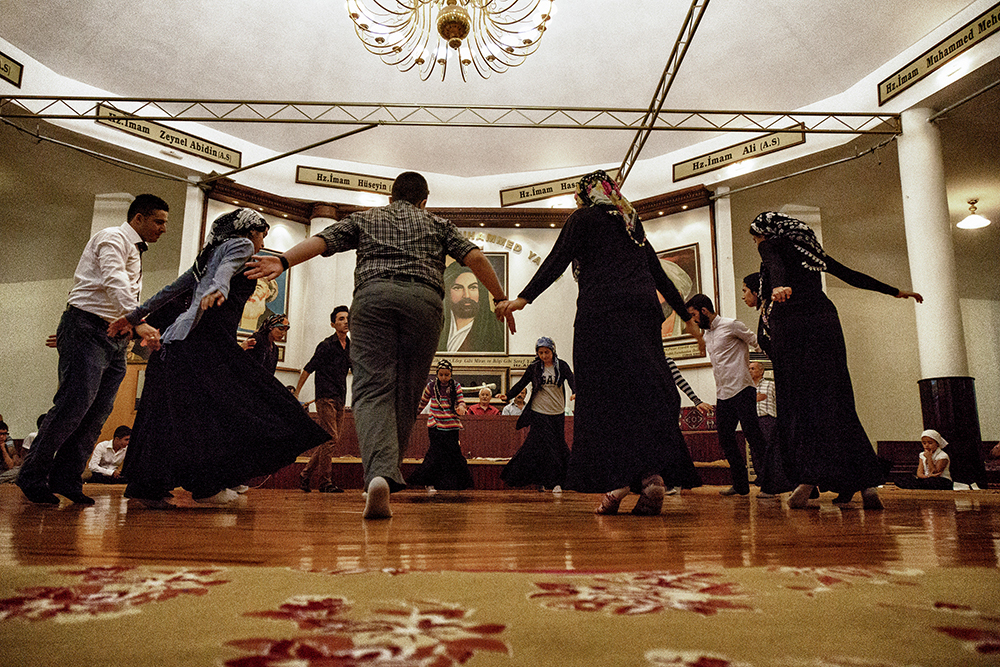This website uses cookies so that we can provide you with the best user experience possible. Cookie information is stored in your browser and performs functions such as recognising you when you return to our website and helping our team to understand which sections of the website you find most interesting and useful.
ALEVI: THE UNKNOWN PEOPLE
-
PrizeBronze in Press/Feature Story
-
PhotographerNikos Pilos, Greece
-
Studiofreelancer photographer
-
Website
-
Instagram
The Alevis are Turkey's biggest religious and
cultural minority, as they make 10 to 15% of the
population. Few people have heard of them and
despite they're so big, they're not recognised by
the state. As their religion is neither Christian,
nor Muslim, they've oppressed for centuries by
both larger religions and had to hide their
religious practices.
In Istanbul, they fully control four
neighborhoods which the Turkish police can't
enter as there are extreme-leftist groups that
are armed. In order to survive, they organise
cooperative gardens and have created small
clothing industries so people can find work.
Alevis are strong in protests. According to a
Turkish police report, last year, 87% of the
people arrested in anti-government protests at
the Gezi park were Alevi, while 8 of the 9 people
that died during the antigovernment protests
died were Alevi. One of them, Berkin Elvan, a
14-year-old, who died after a canister hit him in
the head, became an international symbol of
resistance to police brutality.
Today, Alevism is a secular religion and more of
a philosophical set. Despite being so many, the
Turkish state refuses to recognise Alevi places
of worship (the cemevis) and does not financially
support their religious practices, the way it does
with Sunni. Instead it builds mosques in their
neighbourhoods and on their national ID cards
they're identified as “Muslim”, even though they
say they’re not muslims. As they aren't hired by
the state or by other Sunnis, Alevis are dead-
poor with very little chances to escape poverty.
Alevis lead a more Western lifestyle than Sunnis
do and women don't wear head-scarves, instead
they’re considered equal and participate in the
social life with men. Women and men also pray
together by dancing and singing. They also
believe that the mountains and rivers are holy
and pray to them as well, which is a pagan
characteristic.
Nikos Pilos is an award-winning photojournalist and one of Europe’s noted feature photographers. He has traveled extensively to document war, natural disasters, poverty, socioeconomic struggle and cultural shifts. His work regularly appears in leading international newspapers and magazines and has been exhibited throughout Europe and U.S.Since his first assignment in Lebanon in 1988, he has covered almost all the major historical events at Balkans, Middle East, Maghreb and Eastern Europe. The last two years he is dedicated into the realization of the cross media interactive platform THE REFUGE
Awards LATEST AWARDS
POYi. 2020 Award of Excellence in category, Documentary News Reporting, with the short doc The Refuge.
Global Migration Film Festival 2019, 3rd place at the category Shor film ,with documentary“Dying For Europe
PriMed 2018 International Festival of Mediterranean Documentary and Reportage France.
Public Award with the documentary Dying for Europe.
World Press photo 2017. Category: short film, second place with the documentary Trapped.
POYi ,2016 Category: Exodus, second place with the story The Road Of Tears.
POYi, 2016 Category: Multimedia News Story, third palce with the story, Dying to enter Europe.
Px3 Paris Photography 2015, Bronze metal for the story “Alevi, The Unknown People”.
Fotovisura Grand 2014, Finalist for the story “Seven Years of Recession”.
Px3 Paris Photography 2014, Gold medal for the story “Dying for Electricity” and Silver medal for the story “Turkey Reacts”.
NPPA 2014, Honorable mention for the story “Turkey Reacts”.
POYi 2014, Finalist in the World Understanding category for the story “Greece, Seven Years of Recession”.
Lucie Awards, 2013, Finalist for the story “Greece, Seven Years of Recession”.
PX3-Prix De la Photographie 2013, Gold medal in the Portraits category for a photograph of a member of the Golden Dawn.
CHIPP - China International Press Photo Contest 2012, Award in the Economy Science & Technology category for the story “The coal mines”.
